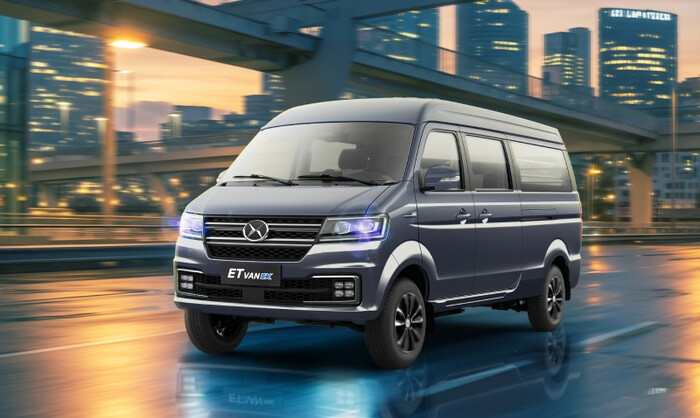
Chinese electric commercial vehicle manufacturers are rapidly increasing their presence in the South Korean market, a trend that follows the earlier arrival of Chinese electric passenger cars. These companies are strategically leveraging a key aspect of South Korea's environmental subsidy policy: a more generous subsidy for electric vehicles equipped with nickel-cobalt-manganese (NCM) batteries compared to those using lithium iron phosphate (LFP) batteries.
This shift is a calculated move to maximize government incentives and gain a competitive edge. A prominent example is Shanxi Victory, which is preparing to launch a new line of 2- and 5-seater NCM electric cargo vans in South Korea. The company has already tested the waters with its LFP-equipped E-CV1 electric cargo van, which it began selling in May. The success of the LFP model, despite its limited range of around 240 km, has given the company confidence to expand its offerings. By switching to NCM batteries, Shanxi Victory expects to boost the driving range to a more competitive 300 to 400 km on a single charge.
Another major player, Wuling Motors, is also planning to release its 1-ton electric van, the 'Yitobi Plus,' equipped with NCM batteries. This decision was made specifically to increase the vehicle's range compared to the existing LFP-powered Yitobi model. Wuling has already demonstrated its readiness to adapt to the Korean market by selling electric trucks that have been upgraded with LG Energy Solution's NCM batteries in place of their original LFP ones.
Meanwhile, Xinyuan, a company considered one of China's "Big 3" electric van manufacturers alongside Geely and Dongfeng, has already introduced its new NCM-powered electric van, the 'E-TIVan X,' to the Korean market. This move highlights the significant impact of the subsidy differential. The subsidy for the E-TIVan X is set at 10.8 million KRW, a stark contrast to the 4.28 million KRW for the LFP-equipped E-TIVan Pro.
An industry official noted that government subsidies are a "critical factor" for electric vehicles in the Korean market. As a result, Chinese commercial vehicle manufacturers are expected to continue expanding their lineup of NCM-based electric vehicles to capitalize on these favorable incentives. This strategic pivot to NCM batteries allows them to offer vehicles with longer ranges, making them more appealing to both commercial operators and individual buyers, while also securing a greater financial advantage through subsidies. This trend signals an increasingly competitive landscape for both domestic and foreign electric vehicle manufacturers in South Korea. The influx of these new, strategically priced, and longer-range electric commercial vehicles from China could significantly reshape the local market in the coming years.
[Copyright (c) Global Economic Times. All Rights Reserved.]




























